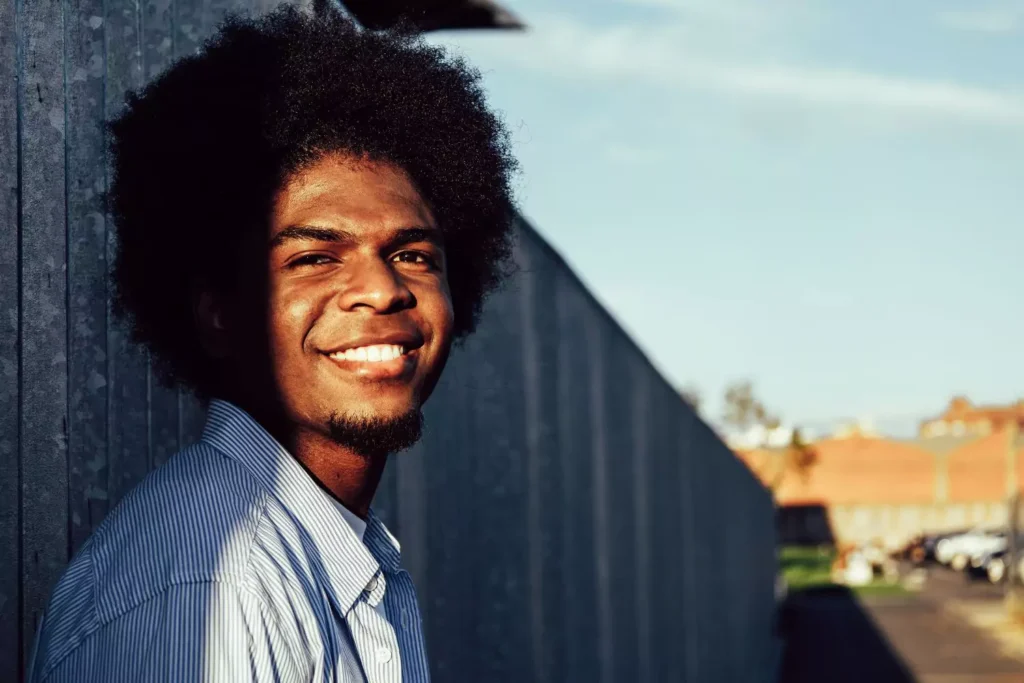Many of us suffer from a thorn like the Apostle Paul (2 Corinthians 12:7). One of mine is that I have struggled with stuttering since I was a child. It has been a source of criticism, embarrassment and shame, and I have endured a multitude of snickers and odd looks while battling it over the years.
Growing up, I learned to hide my speech well, especially if I chose my words carefully and had ample time to prepare. But in college, after my relationship with Christ began, I felt His call on my life to become a speaker. This terrified me! I knew that public speaking was most people’s No. 1 fear — even over death. I wondered, How could I possibly teach Scripture publically? (Jerry Seinfeld jokes about this fear, saying people would rather be the one in the casket than the one giving the eulogy.)
God convicted me to face my fear head-on, so I enrolled in speech therapy. One of the first challenges my therapist prescribed was for me to strip away the “filler words” and word substitutions I used regularly to camouflage my stuttering. Like a wound that needed to be cleaned before it could heal, my true speech pattern needed to be exposed for treatment to be effective.
My feelings of shame for stuttering also needed to be uncovered, so my therapist assigned me to share my speech struggles with several others — to be vulnerable.
I dreaded this.
Created by God
Our human nature is to resist vulnerability. We’d rather hide our weaknesses or pretend they’re not there. Yet God calls us as Christians to relate to Him with our weaknesses fully acknowledged. As we admit our limitations as humans, we can trust that when our capabilities end, His begin.
Here are two reasons why God chose to create us this way.
First, for His glory. We see an example of this in Romans 4:18. God promised Abraham he would be the “father of many nations,” but he and his wife grew old in years and were powerless without God to bear a child. Even though Abraham faced dire circumstances, he “did not waver through unbelief regarding the promise of God, but was strengthened in his faith and gave glory to God” (Romans 4:21, NIV).
Like Abraham, when we exercise faith in God amidst our own weakness, it glorifies Him.
Second, God designed us with weaknesses so we can rightfully depend on Him. When we rely on God’s competency, only then do we live in true relationship with Him. Our built-in weaknesses become the very things that allow God to be God in our lives.
Christ illustrates our reliance on Him and His Spirit when He describes himself as a shepherd and us as His sheep: “I am the good shepherd. I know my own and my own know me, just as the Father knows me and I know the Father; and I lay down my life for the sheep” (John 10:14-15).
Sheep are defenseless animals and endanger themselves when they wander. But when in close proximity of their shepherd, they can fully depend on him for protection.
Where Shame Comes From
Adam and Eve lived in paradise with God, but like all of us, they were susceptible to the Enemy’s temptations. And ultimately, their weakness brought sin into the world, causing three related consequences: fear, isolation and shame. These can be summed up in Adam’s response to God: “But the Lord God called to the man and said to him, ‘Where are you?’ And he said, ‘I heard the sound of you in the garden, and I was afraid, because I was naked, and I hid myself'” (Genesis 3:9-10).
When Adam and Eve experienced shame, they chose to hide and fabricate leaves to cover what was different about them. Adam and Eve’s coverings separated their sexuality, and similarly, the Enemy tempts us to cover the parts of us we feel are different. Shame and hiddenness form a barrier between us and God, and us and each other. Left hidden, shame ultimately builds an emotional and spiritual prison in which only we get to live. The Enemy loves this.
Relying on perceived differences, shame primarily attacks our identity. In other words, it lies about who we are and wants to convince us that something is wrong within us. Therefore, to overcome shame, we need to first believe and experience who the Lord says we are in Christ. It’s worth praying over and absorbing the litany of verses that explain who we are as His children (John 1:12), how Jesus calls us friends (John 15:15), and that we are new creations (2 Corinthians 5:17).
Furthermore, we can rest knowing Jesus’ death and resurrection conquered our shame and guilt. And because we are “in Christ,” we don’t have to hide anymore — from God or anyone else. We are free to be genuine with all of our gifts, struggles and “nakedness.” Second Corinthians reveals to us that “[n]ow the Lord is the Spirit, and where the Spirit of the Lord is, there is freedom” (2 Corinthians 3:17).
Practically Speaking
Because we are coworkers with Christ (1 Corinthians 3:9), it comes as no surprise that He asks us to partner with Him to break this cycle of shame. To do this, we must share what we so desperately want to hide — to become vulnerable — the very thing shame screams at us not to do. As the Lord sought Adam and Eve when they attempted to hide in the garden, so He comes looking for us in our fear and pain. Let Him find you. Start by talking to God about your struggles through prayer, journaling and absorbing Scripture. Give Him the password to your heart, and grant Him access to those things you want to hide.
As I trust in God and His power, I become confident to begin sharing my woundedness with others close to me. This is because I understand risk creates the opportunity for faith. I know my faith in Christ will never mitigate the possibility of others rejecting me, but my place as His child will never be shaken.
A fear of man often surrounds our deepest vulnerabilities. Yet our love for God breaks that stronghold. The reason Scripture states numerous times to “fear God” is because we inherently worship our greatest fear — we are loyal to it. In other words, regardless of what we fear the most, it becomes the hub in which we build our lives around, and we will use our best time, energy and resources serving it.
God doesn’t want to share His throne with our fears. He is a jealous God, and any other fear besides Him quickly becomes an idol. By trusting in His power to create wholeness within us, we reject all other lesser forms of healing. Then we can confidently peel away the veneer of depending on our own strengths, finances, and human accomplishments. This is what it means to worship God and base our identity on Christ.
As we have seen, the Enemy attempts to exploit our weaknesses through fear, isolation and shame. God, on the other hand, designed our vulnerability for His glory and for us to receive more of His grace through it. This is because God’s grace is God’s power, and we receive it in truckloads when we exercise humility around our weaknesses. This is exactly why God tells Paul in relation to his thorn, “My power is made perfect in weakness” (2 Corinthians 12:9). Vulnerability becomes not a detriment, but the ultimate empowerment for us to allow God to reign in and through us.
In His wisdom, God created us to be inadequate beings who are complete only when we completely depend on Him. Then we find our freedom from shame and our strength in vulnerability through knowing all of our inabilities are solved by His abilities.
Copyright 2014 Eric Demeter. All rights reserved.










